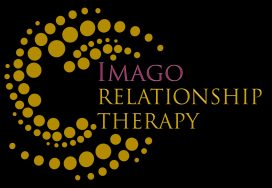It’s challenging to learn new talking and listening boundaries in recovery. In fact, it’s evolutionary. Our efforts to learn how to talk and listen to the people we want to be intimate is generally interrupted by internal signals within that get transmitted to us from our past.
Many of us read these signals as we need to defend ourselves, and if we don’t defend ourselves people will find out about our inadequacies and we will be embarrassed, ridiculed and humiliated.
People who consider themselves “normal” live in this anxious turmoil and see nothing abnormal with the defensive and aggressive actions they take to avoid being vulnerable.
When I first heard recovering AA people describe themselves as “grateful recovering alcoholics,” I wondered why they were grateful for the suffering and pain their alcoholism had caused.
Over time, I came to see that it was because their alcoholism had made them so desperate that they had been forced to learn about a better way of living and loving.
Had these grateful recovering alcoholics been more “normal,” they would have never found it necessary to learn that the status quo was a unhealthy condition.
Sadly, most of us who have problems with relationships continue our dysfunctional “normality” by perceiving emotions and thoughts as hostile, and we respond to thoughts and emotions by becoming silent (walled in), or turning aggressive (lashing out).
In either case, what we are trying to do is show our invulnerability, and in being invulnerable we are outside of the realm of relationships and intimacy, which makes intimacy impossible.
When we wall ourselves off from the vestiges of our childhood shame, fear, loneliness, grief and guilt we are essentially building a dysfunctional adult personality because we are still being unconsciously controlled by the emotional forces that originated in our un-examined past.
Since we are still driven by our past we interpret the truth about others as potentially destructive to our worth. We are afraid that their truth will show us that we are defective people. So we continue to be manipulated, like puppets on a string by these unseen emotional forces that stretch all the way back to our childhood, and unconsciously act out the roles that were given to us by our dysfunctional caregivers.
Without new talking and listening boundaries, there is no relationship. Without relationship there is no intimacy. Without intimacy there is no love and without love the spiritual path is hidden from us.
In talking to your partner here are a few don’t’s: don’t accuse, don’t tell your partner what he or she should be feeling, don’t give advice, don’t judge, don’t guess your partner’s motivation, don’t be sarcastic, don’t call your partner names.
Boundaries create the experience of truth and respect and it’s the ground for which love can grow. It is important to know that our inherent worth cannot be taken from us by being our authentic self. The word authentic derives from authentes, which means, “author.” The opposite of authentic is counterfeit.
We are born worthy and it comes with all our human flaws. It is crucial to identify the traumas and abuses that first made us allergic to ourselves—allergic to our imperfect humanity.
By recovering from the psychological damage that keeps us from intimacy we learn to experience renewed self-esteem, personal power and faith, which gives us the ability to have intimate relationships.
Love in recovery,
Paula







